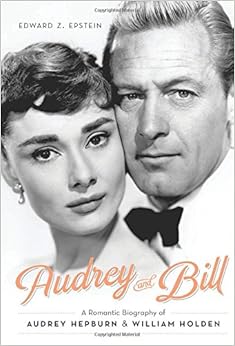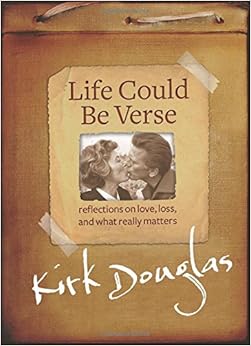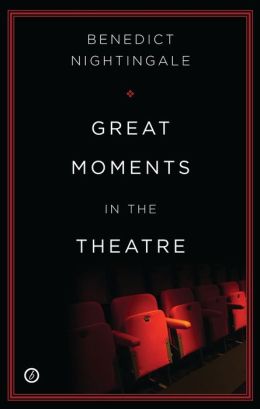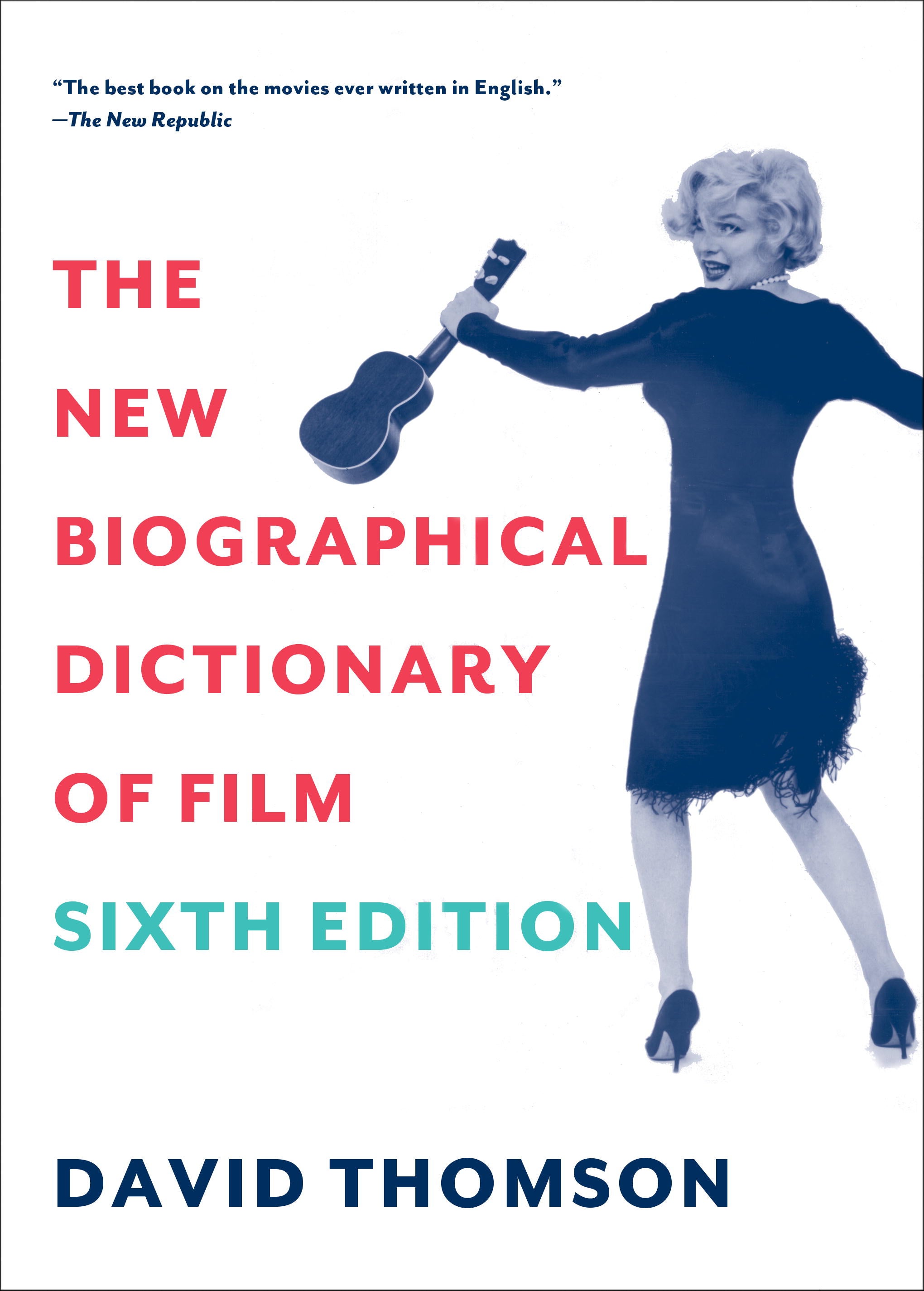Showing posts with label Films. Show all posts
Showing posts with label Films. Show all posts
Tuesday, May 16, 2017
TCR Celebrates National Classic Movie Day, May 16.
The Committee Room wishes you a Happy National Classic Movie Day! To celebrate classic movies, TCR is taking part in the Five Stars Blogathon, hosted by Classic Film and TV Cafe.
Five Stars Blogathon participants list five of their favorite classic-era stars and offer a brief explanation as to why these stars are favorites. In putting together its list, TCR chose to move past stardom's top, instantly recognizable folks (the level depicted in the illustration above) and give a nod to five less exalted but highly deserving performers. Perhaps reflecting their B list status, all of TCR's favorites may be best known more for their work on television than on the big screen.
Monday, May 15, 2017
TCR on Film: An Interview with Mark A. Vieira, author of "Into the Dark -- The Hidden World of Film Noir, 1941-1950."
In the excellent new book Into the Dark: The Hidden World of Film Noir, 1941 -1950 (Running Press, 2016) veteran author Mark A. Vieira uses first hand accounts to take readers back to the 1940s. Instead of latter day critical analysis, we get reviews and comments from the film noir era along with the reminiscences of performers, including noir specialists Jane Greer and Claire Trevor, and other personnel who were part of the film noir world.
"I determined that film noir truly began in 1941 by reading Los Angeles Times articles of the period," Vieira explained to The Committee Room. "They cited Citizen Kane and The Maltese Falcon as the first of the 'hard-boiled' trend."
As Vieira points out in Into the Dark, the term film noir was unknown to those who made these films. The term was coined by a French critic in 1946 to describe the large number of crime thrillers and murder dramas coming out of Hollywood but did not come into general use until the 1970s when these stylish films were rediscovered by a new generation of critics and moviegoers.
"I determined that film noir truly began in 1941 by reading Los Angeles Times articles of the period," Vieira explained to The Committee Room. "They cited Citizen Kane and The Maltese Falcon as the first of the 'hard-boiled' trend."
As Vieira points out in Into the Dark, the term film noir was unknown to those who made these films. The term was coined by a French critic in 1946 to describe the large number of crime thrillers and murder dramas coming out of Hollywood but did not come into general use until the 1970s when these stylish films were rediscovered by a new generation of critics and moviegoers.
Thursday, March 2, 2017
TCR on Film: "Unsinkable: A Memoir" by Debbie Reynolds
In the preface to Unsinkable, Reynolds mentions her first book, Debbie: My Life (William Morrow, 1988), written when the actress was in her fifties and, it would seem, still had a lot of living left to do. "I can't believe how naive I was when I wrote it," Reynolds in Unsinkable says of the earlier book. She explains that at the time she was writing the first book she was in what she believed was a happy marriage to her third husband, a Virginia real estate developer named Richard Hamlett.
In Unsinkable, Reynolds offers a detailed portrait of Hamlett as a handsome, smooth-talking scoundrel who, she maintains, cold-heartedly entered into marriage with the intention of swindling her. The first third of the book is Reynolds' painstaking and angrily told account of how Hamlett's unscrupulous behavior led to the bankruptcy of her Las Vegas hotel, a venture which she hoped would provide a regular venue for her talents along with a steady income. Consequently, in Unsinkable there is much talk, perhaps too much talk, of lawyers and property deeds and promissory notes.
Thursday, October 13, 2016
An Interview with Brian Kellow, author of "Can I Go Now? The Life of Sue Mengers, Hollywood's First Superagent."
Superagent Sue Mengers. Do any other three words better conjure up the enormous energy, creativity and free-wheeling social life of Hollywood in the 1970s?
Mengers is the subject of an excellent new biography Can I Go Now? The Life of Hollywood's First Superagent by Brian Kellow. The title of the book comes from Mengers' passive-aggressive way of ending phone conversations.
Kellow's previous work includes books on Broadway legend Ethel Merman (Ethel Merman: A Life, 2007) and film critic Pauline Kael (Pauline Kael: A Life in the Dark, 2011). He was also on the staff of Opera News for many years.
The idea of writing a biography of Mengers came to Kellow from his own (literary) agent. At first Kellow was skeptical, thinking that there wasn't enough substance in the life of Sue Mengers to warrant a biography. "My last book had been a biography of Pauline Kael, and I was very keen to follow it up with another biography of a writer," Kellow told The Committee Room. "To write a book about an agent seemed like a questionable project, especially after having written about someone as complex and brilliant as Pauline. But I was wrong: Sue was complex and brilliant in her own right, and once I began the research, I knew that this was a great topic. It was also a wonderful opportunity to write about the films and stars and filmmakers of the late '60s, the '70s and early '80s--still, to my mind, the most stimulating era in American movie-making."
Mengers is the subject of an excellent new biography Can I Go Now? The Life of Hollywood's First Superagent by Brian Kellow. The title of the book comes from Mengers' passive-aggressive way of ending phone conversations.
Kellow's previous work includes books on Broadway legend Ethel Merman (Ethel Merman: A Life, 2007) and film critic Pauline Kael (Pauline Kael: A Life in the Dark, 2011). He was also on the staff of Opera News for many years.
The idea of writing a biography of Mengers came to Kellow from his own (literary) agent. At first Kellow was skeptical, thinking that there wasn't enough substance in the life of Sue Mengers to warrant a biography. "My last book had been a biography of Pauline Kael, and I was very keen to follow it up with another biography of a writer," Kellow told The Committee Room. "To write a book about an agent seemed like a questionable project, especially after having written about someone as complex and brilliant as Pauline. But I was wrong: Sue was complex and brilliant in her own right, and once I began the research, I knew that this was a great topic. It was also a wonderful opportunity to write about the films and stars and filmmakers of the late '60s, the '70s and early '80s--still, to my mind, the most stimulating era in American movie-making."
Monday, October 26, 2015
TCR on Show Business: "Judy + Liza + Robert + Freddie + David + Sue + ME" by Stevie Phillips
"What is an agent?" asks Stevie Phillips in her recently published memoir Judy + Liza + Robert + Freddie + David + Sue + ME (St. Martin's Press). Phillips knows the answer. She was once among the most powerful talent agents in the entertainment industry, having shepherded Liza Minnelli and Robert Redford to superstardom.
"An agent is a fraud, but a fraud with good intentions...someone totally willing to sublimate herself to be the person the client wants her to be. Do you want me to be angry on your behalf? Here I am. Do you want me to be docile for you? Here I am. But regardless of what role-playing takes place, an agent must always maintain integrity and never lead a client knowingly in the wrong direction," Phillips writes.
Unlike the legendary agent Irving "Swifty" Lazar, whose Oscar night parties were the height of Hollywood A-list gatherings. or the world class schmoozer Sue Mengers, such a big personality that she was brought back to life in 2013 by Bette Midler in the one-character Broadway play I'll Eat You Last and is the subject of a just published biography (Can I Go Now? by Brian Kellow) Phillips never became more famous than a lot of her clients. Her stock in trade was cool, calm, behind the scenes efficiency.
"An agent is a fraud, but a fraud with good intentions...someone totally willing to sublimate herself to be the person the client wants her to be. Do you want me to be angry on your behalf? Here I am. Do you want me to be docile for you? Here I am. But regardless of what role-playing takes place, an agent must always maintain integrity and never lead a client knowingly in the wrong direction," Phillips writes.
Unlike the legendary agent Irving "Swifty" Lazar, whose Oscar night parties were the height of Hollywood A-list gatherings. or the world class schmoozer Sue Mengers, such a big personality that she was brought back to life in 2013 by Bette Midler in the one-character Broadway play I'll Eat You Last and is the subject of a just published biography (Can I Go Now? by Brian Kellow) Phillips never became more famous than a lot of her clients. Her stock in trade was cool, calm, behind the scenes efficiency.
Tuesday, June 2, 2015
TCR on Film: An Interview with Edward Z. Epstein, author of "Audrey and Bill: A Romantic Biography of Audrey Hepburn and William Holden"
In Audrey and Bill: A Romantic Biography of Audrey Hepburn and William Holden, just published by Running Press, veteran film journalist Edward Z. Epstein creatively uses the personal relationship between Hepburn and Holden as a starting point for a wider look at how these two very big stars of the 1950s maneuvered through the changes that came to their lives and to the film industry in the 1960s and beyond.
"Both stars are charismatic screen personalities, favorites of mine, and I’d thought for a long time about writing a book on the largely untold story of their romance," Epstein, who is the author of numerous books on film subjects including Paul Newman, Clara Bow, and Marlon Brando, told The Committee Room. "As New York press contact for MCA/Universal, I worked with many people, over the years, who knew both Audrey and Bill, and who were familiar with the problems they faced and the pressures of the business they were in."
Today Hepburn is an icon recognizable even to those not so familiar with her film work. Holden, though he had a much longer career than Hepburn and his once tremendous box-office clout earned him the nickname "Golden Holden," has not been so well remembered.
"Both stars are charismatic screen personalities, favorites of mine, and I’d thought for a long time about writing a book on the largely untold story of their romance," Epstein, who is the author of numerous books on film subjects including Paul Newman, Clara Bow, and Marlon Brando, told The Committee Room. "As New York press contact for MCA/Universal, I worked with many people, over the years, who knew both Audrey and Bill, and who were familiar with the problems they faced and the pressures of the business they were in."
Today Hepburn is an icon recognizable even to those not so familiar with her film work. Holden, though he had a much longer career than Hepburn and his once tremendous box-office clout earned him the nickname "Golden Holden," has not been so well remembered.
Tuesday, March 17, 2015
TCR on Films -- "Life Could Be Verse: Reflections on Love, Loss, and What Really Matters" by Kirk Douglas
In Life Could Be Verse, a brief and often affecting volume, actor Kirk Douglas, who recently turned ninety-eight years old, shares poems he has written over the course of his long life and recounts the experiences that inspired the verses.
Kirk wrote his first poem -- about a sailing ship, though he had never seen the ocean -- for an English class assignment as a high school student in upstate New York back when he was still Issur Danielovitch, the child of impoverished Russian Jewish immigrants. He discovered that versifying helped him better understand his thoughts. "Throughout my life I have written poems that express my true feelings," Kirk explains in the book's acknowledgments.
The poems are simple but perceptive reflections set in singsong rhyme and might be called wise doggerel. Here are the opening lines from "Luck" -- They call it 'luck'/It can't be taught/It can't be borrowed/It can't be bought'. Kirk's movie stardom, though discussed in the book, takes a back seat to his roles of son, husband, father, and grandfather.
.
Kirk wrote his first poem -- about a sailing ship, though he had never seen the ocean -- for an English class assignment as a high school student in upstate New York back when he was still Issur Danielovitch, the child of impoverished Russian Jewish immigrants. He discovered that versifying helped him better understand his thoughts. "Throughout my life I have written poems that express my true feelings," Kirk explains in the book's acknowledgments.
The poems are simple but perceptive reflections set in singsong rhyme and might be called wise doggerel. Here are the opening lines from "Luck" -- They call it 'luck'/It can't be taught/It can't be borrowed/It can't be bought'. Kirk's movie stardom, though discussed in the book, takes a back seat to his roles of son, husband, father, and grandfather.
.
Tuesday, February 10, 2015
TCR on Films: "Watch Me: A Memoir" by Anjelica Huston
In the recently published Watch Me: A Memoir, actress and sometime director Anjelica Huston picks up where she left off in her first book, A Story Lately Told: Coming of Age in Ireland, London and New York (discussed in TCR in April 2014).
At the start of this second volume Huston is in her early twenties and has just arrived in Los Angeles. She has been a successful fashion model in Europe and New York but is eager to commence a new life in sunny SoCal after finally extrapolating herself from a difficult relationship with a mentally ill photographer old enough to be her father.
Anjelica is a new girl in town but, being the daughter of legendary film director and bon vivant John Huston, she is an extremely well-connected one. It isn't long before she meets rising star Jack Nicholson and they begin a lengthy reign as Hollywood's coolest couple. Woody Allen immortalized their partnership in Annie Hall in which Annie's acceptance by the in-crowd is represented by her being invited to a party at Jack and Anjelica's.
Jack and Anjelica are an unequal pair. Nicholson essentially replaces John Huston as the charismatic, energetic and famous man dominating over Anjelica's life. As Jack ascends to superstardom in Chinatown, One Flew Over the Cuckoo's Nest, and The Shining, Anjelica hangs around and smokes -- sometimes on Jack's movie locations, sometimes back home at Jack's house on Mulholland, sometimes at the homes of friends in Paris, London, New York, and Aspen.
At the start of this second volume Huston is in her early twenties and has just arrived in Los Angeles. She has been a successful fashion model in Europe and New York but is eager to commence a new life in sunny SoCal after finally extrapolating herself from a difficult relationship with a mentally ill photographer old enough to be her father.
Anjelica is a new girl in town but, being the daughter of legendary film director and bon vivant John Huston, she is an extremely well-connected one. It isn't long before she meets rising star Jack Nicholson and they begin a lengthy reign as Hollywood's coolest couple. Woody Allen immortalized their partnership in Annie Hall in which Annie's acceptance by the in-crowd is represented by her being invited to a party at Jack and Anjelica's.
Jack and Anjelica are an unequal pair. Nicholson essentially replaces John Huston as the charismatic, energetic and famous man dominating over Anjelica's life. As Jack ascends to superstardom in Chinatown, One Flew Over the Cuckoo's Nest, and The Shining, Anjelica hangs around and smokes -- sometimes on Jack's movie locations, sometimes back home at Jack's house on Mulholland, sometimes at the homes of friends in Paris, London, New York, and Aspen.
Friday, September 26, 2014
"Vanessa: The Life of Vanessa Redgrave" (Interview with biographer Dan Callahan)
At the opening of his superb new biography Vanessa: The Life of Vanessa Redgrave, author Dan Callahan takes readers back to 1997 when he was a drama student in New York. From a discount-price, obstructed view seat the young Callahan watched the great Vanessa Redgrave as Cleopatra in Shakespeare's Antony and Cleopatra. At the end of the performance, a matinee at the Public Theater, Redgrave solemnly informed the audience that she had just received word of the death of Fred Zinnemann who had directed her Oscar winning performance in Julia two decades earlier. Redgrave praised Zinnemann's Western film classic High Noon, citing it as a brave statement against the obsessive anti-Communism that pervaded American society in the early 1950s. Then, in her soft British accent, Redgrave astonished the audience by launching into a rendition of the theme to High Noon, a twangy ballad ("Do not forsake me, oh my darling!...") originally sung by Tex Ritter.
The crowd drifted out of the theater as Redgrave continued through the verses of the song but Callahan was transfixed. Nearly twenty years later, his fascination with Redgrave has not diminished.
"I just can’t get enough of watching her. I think that there is something very special going on when she acts, and I wanted to celebrate that," Callahan told The Committee Room.
The crowd drifted out of the theater as Redgrave continued through the verses of the song but Callahan was transfixed. Nearly twenty years later, his fascination with Redgrave has not diminished.
"I just can’t get enough of watching her. I think that there is something very special going on when she acts, and I wanted to celebrate that," Callahan told The Committee Room.
Thursday, September 11, 2014
In Honor of the 75th anniversary of 'Gone with the Wind' -- An Interview with Kendra Bean, author of "Vivien Leigh: An Intimate Portrait"
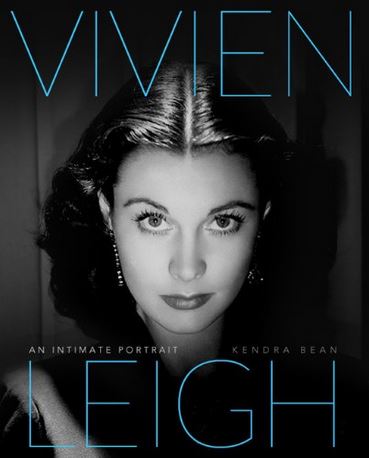 |
| Vivien Leigh: An Intimate Portrait by Kendra Bean. |
At the center of this immortal film is the performance of Vivien Leigh as the scheming Southern belle Scarlett O'Hara. While it may be possible to imagine another actress as Scarlett, it is difficult to see Gone with the Wind achieving such tremendous success if Leigh had not been cast. Leigh's remarkable ability to convey steely determination underscored with trembling fragility is an essential element. Even in the capable hands of Katharine Hepburn or Bette Davis, both of whom were among the many actresses who wanted to play Scarlett, Selznick's grandiose production may have come down to us as an overblown, dated melodrama.
There have been major biographies of Leigh by Anne Edwards (1977), Alexander Walker (1987), and Hugo Vickers (1989). Bean, a young American film historian based in London, represents a new generation of film scholars. She told TCR that she was drawn to write about Leigh, who died from a badly treated case of tuberculosis at age fifty-three in 1967, "because she’s interesting, often misunderstood, and nothing I’d read about her before seemed to satisfy my curiosity about her life or her work."
Bean is the first major Leigh biographer to have access to the papers of the actor Laurence Olivier, acquired by the British Library in 2000. Leigh and Olivier were married for twenty years before divorcing in 1960.
Wednesday, September 10, 2014
The Committee Room's New Focus: Film, Theater, and Television
Below are links to some of the articles on film, theater, and television that we have already published.
TCR Spotlight on Theater: Great Moments in Theatre by Benedict Nightingale
Writing for Television: An Interview with Jennifer Keishin Armstrong, author of Mary and Lou and Rhoda and Ted and All the Brilliant Minds Who Made 'The Mary Tyler Moore Show' a Classic
Wednesday, July 9, 2014
TCR Recommends: "The New Biographical Dictionary of Film" (Sixth Edition) by David Thomson
David Thomson has been writing and publishing books, essays, and reviews on film for nearly half a century. His quirky, highly subjective style can infuriate but he is so deeply knowledgeable that he never fails to hold one's attention.
"Witty, expansive, convincing, honest, more than a little mischievous and, so often, absolutely on the money, Thomson’s voice is one of the most distinctive and enjoyable in film criticism," says Benjamin Secher in The Telegraph.
A sixth edition of Thomson's best known work, The New Biographical Dictionary of Film, was recently released by Knopf. In the introduction to the sixth edition, Thomson writes -- "Opinion can be emphatic, self-indulgent, cruel, tasteless -- and at times this book has suffered in those ways. But it can be creative, provocative, the start of a conversation." Thomson has mellowed and says that he no longer believes (as he did when writing the first edition of the Biographical Dictionary, published in 1975) that "not only must one like the right films but one must also like them for the right reasons" but the book remains a "mechanism for alerting you to films you have not seen and may never have heard of."
Dana Stevens of Slate calls The New Biographical Dictionary of Film the "book every movie lover should own" but warns that it is "the most idiosyncratic and deeply personal of a filmgoer’s journals masquerading as a reference work."
"Witty, expansive, convincing, honest, more than a little mischievous and, so often, absolutely on the money, Thomson’s voice is one of the most distinctive and enjoyable in film criticism," says Benjamin Secher in The Telegraph.
A sixth edition of Thomson's best known work, The New Biographical Dictionary of Film, was recently released by Knopf. In the introduction to the sixth edition, Thomson writes -- "Opinion can be emphatic, self-indulgent, cruel, tasteless -- and at times this book has suffered in those ways. But it can be creative, provocative, the start of a conversation." Thomson has mellowed and says that he no longer believes (as he did when writing the first edition of the Biographical Dictionary, published in 1975) that "not only must one like the right films but one must also like them for the right reasons" but the book remains a "mechanism for alerting you to films you have not seen and may never have heard of."
Dana Stevens of Slate calls The New Biographical Dictionary of Film the "book every movie lover should own" but warns that it is "the most idiosyncratic and deeply personal of a filmgoer’s journals masquerading as a reference work."
Subscribe to:
Posts (Atom)






